Review and amend regulations on the roadmap for applying policies on domestic solid waste management
Basically agreeing with the National Assembly's Supervision Report and draft Resolution, National Assembly Delegate Ma Thi Thuy ( Tuyen Quang ) highly appreciated the Report for objectively and comprehensively reflecting the achieved results, limitations and practical solutions.
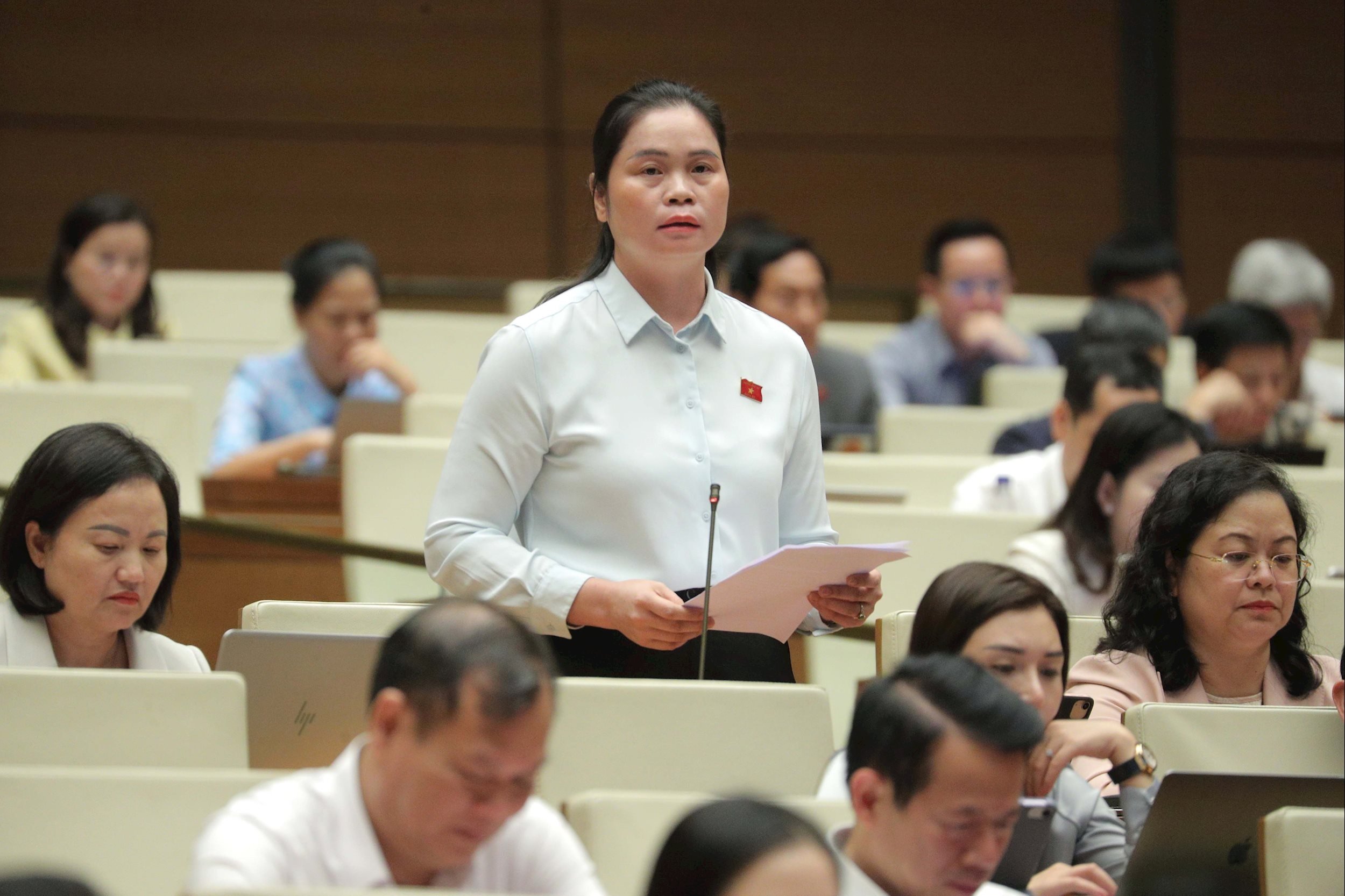
However, through monitoring local practices, delegate Ma Thi Thuy said that there are still some problems. For example, the roadmap for sorting waste at source and collecting fees by volume (no later than December 31, 2024 according to Clause 7, Article 79 of the Law on Environmental Protection) is not feasible in mountainous areas and difficult to implement.
“The reasons are the fragmented terrain, scattered population, incomplete collection system, while the budget for environmental protection here is very limited; the collection infrastructure is still mainly manual burial, many communes do not have collection points or standard incinerators,” delegate Ma Thi Thuy analyzed.
In addition, according to Article 111 of the Law on Environmental Protection 2020 and Decree No. 08/2022/ND-CP, enterprises must build tanks and reservoirs to respond to environmental incidents, but to date there are no specific regulations or technical standards. Therefore, facilities face difficulties in design and appraisal, leading to different applications between localities and high investment costs.
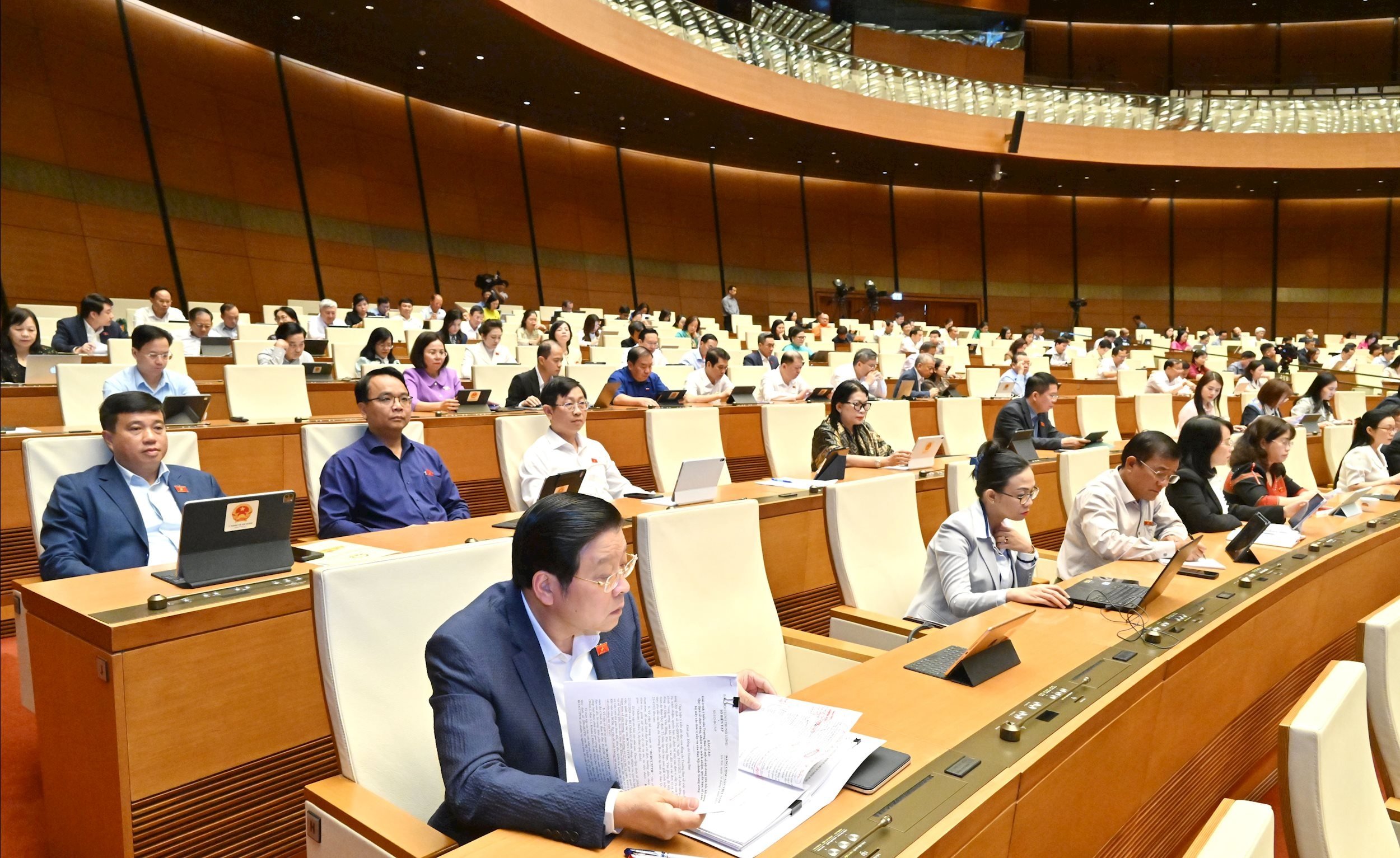
Regarding automatic monitoring of wastewater and emissions, delegate Ma Thi Thuy said that this is a correct policy, but the cost of installing and maintaining the system is still high, while technical regulations are not yet synchronized, causing difficulties for businesses in the implementation process.
From the above analysis, delegate Ma Thi Thuy suggested that it is necessary to increase resources and socialization. Accordingly, thoroughly grasping the viewpoint of "spending on the environment is investing in development", to effectively implement, the delegate suggested to specify more specifically the increase of targeted support capital from the central budget for disadvantaged localities. This capital should focus on essential infrastructure: treatment of domestic solid waste, urban wastewater and industrial clusters.
At the same time, it is necessary to issue strong incentive mechanisms on tax, credit, and land to attract private investment in the field of waste collection and treatment, especially in rural and remote areas. At the same time, it is recommended that the National Assembly direct the review and amendment of regulations on the roadmap for applying the policy on domestic solid waste management (according to Clause 7, Article 79 of the Law on Environmental Protection) to ensure feasibility, especially for mountainous areas.
Sharing the same view, National Assembly Deputy Ly Tiet Hanh ( Gia Lai ) proposed that it is necessary to amend the regulation requiring households and individuals to complete the classification of domestic solid waste by December 31, 2024 at the latest to be consistent with and ensure the strictness of the law.
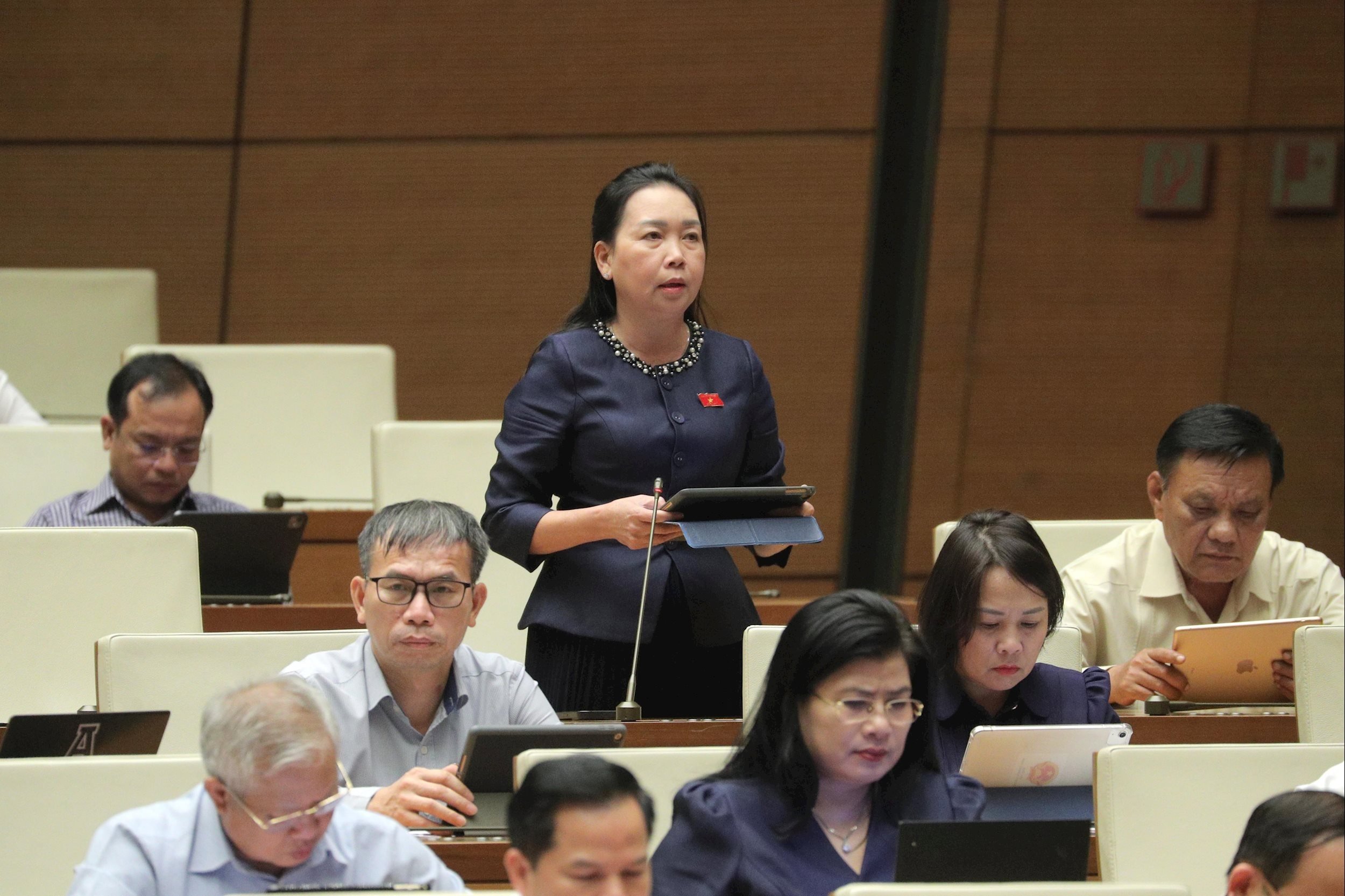
At the same time, review the investment in infrastructure as well as the process and methods of collecting and classifying garbage to make it most convenient for people, avoiding the situation where the Law has been issued but not enforced.
Unifying the operating mechanism of provincial environmental protection funds
Concerned about financial resource bottlenecks, National Assembly Deputy Nguyen Thi Viet Nga (Hai Phong) said that currently, the whole country has the Vietnam Environmental Protection Fund at the central level and many provincial Environmental Protection Funds, established under Article 151 of the 2020 Law on Environmental Protection, but their operational efficiency is still limited.
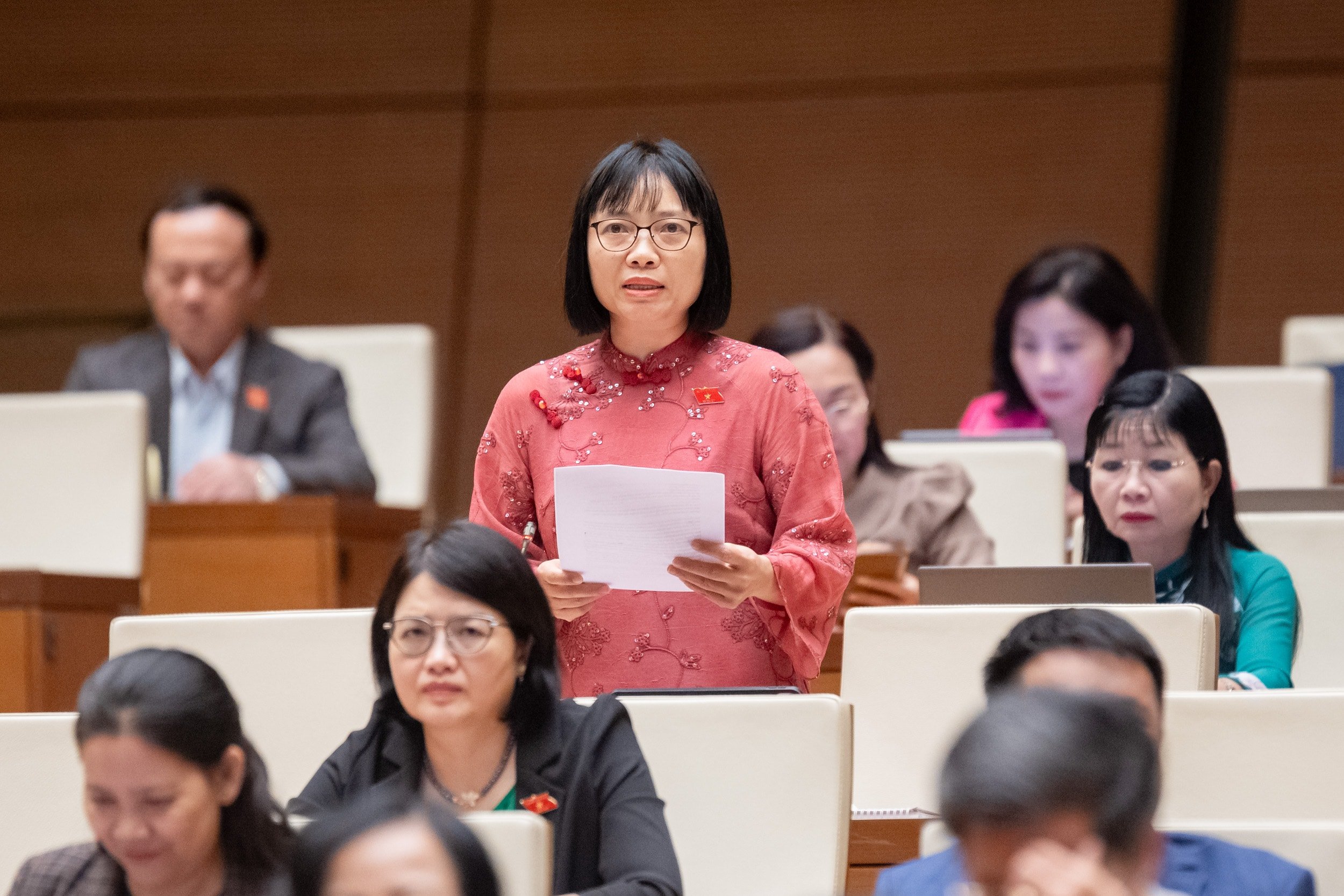
According to delegates, most of the funds have small charter capital (only a few tens of billions of VND), and their main source of revenue still depends on the state budget, while the ability to mobilize from businesses, individuals, and international organizations is still very low. Many local funds have not yet properly performed their functions of supporting investment, providing preferential loans, financing pollution treatment projects, or renovating craft villages.
"This practice is due to the lack of a unified legal framework on organizational models, financial mechanisms and operating methods. Currently, the Government has not yet issued a Decree to replace Decision No. 78/2014/QD-TTg on the organization and operation of the Vietnam Environmental Protection Fund, a document issued more than 10 years ago, which is no longer suitable for the new context."
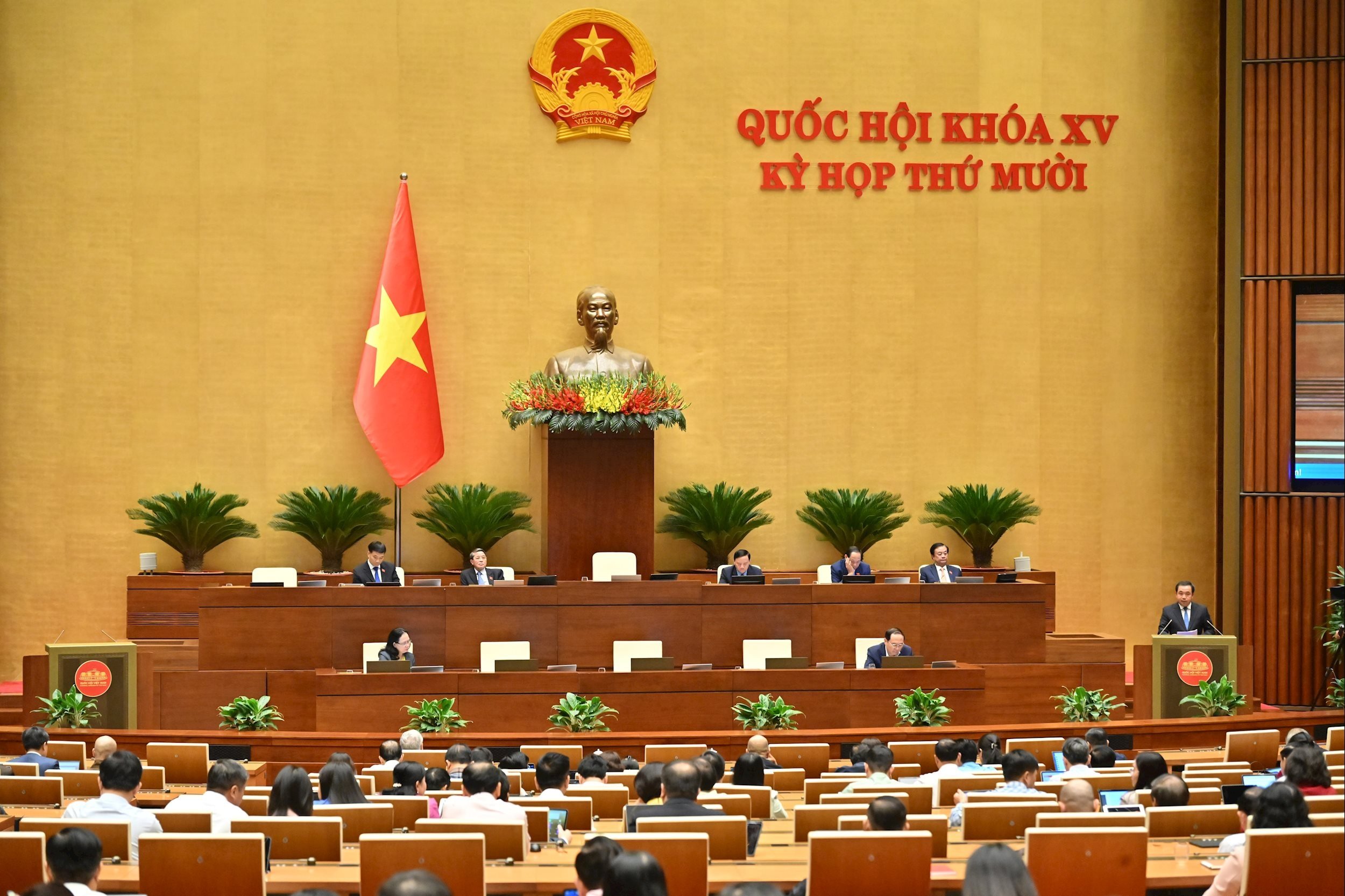
Therefore, delegate Nguyen Thi Viet Nga proposed that the Government soon issue a new decree, in the direction of unifying the operating mechanism of provincial funds, allowing funds to receive funding, issue green bonds and cooperate with the private sector in investing in environmental infrastructure; expanding the authority for funds to provide preferential loans, credit guarantees or co-finance investments with environmental protection projects that can recover capital.
Delegates also proposed to increase the budget expenditure for environmental protection to at least 30% compared to the current level. Because environmental protection is not the “price to pay for development”, but a prerequisite for sustainable development and people's quality of life.
“If we improve institutions, expand public-private cooperation, and invest appropriate budget, the environment will become the foundation and driving force for green growth, not a barrier,” delegate Nguyen Thi Viet Nga emphasized.
Source: https://daibieunhandan.vn/nang-ty-trong-chi-ngan-sach-cho-bao-ve-moi-truong-10393339.html


![[Photo] National Assembly Chairman Tran Thanh Man received a delegation of the Social Democratic Party of Germany](https://vphoto.vietnam.vn/thumb/1200x675/vietnam/resource/IMAGE/2025/10/28/1761652150406_ndo_br_cover-3345-jpg.webp)


![[Photo] Draft documents of the 14th Party Congress reach people at the Commune Cultural Post Offices](https://vphoto.vietnam.vn/thumb/1200x675/vietnam/resource/IMAGE/2025/10/28/1761642182616_du-thao-tai-tinh-hung-yen-4070-5235-jpg.webp)
![[Photo] Flooding on the right side of the gate, entrance to Hue Citadel](https://vphoto.vietnam.vn/thumb/1200x675/vietnam/resource/IMAGE/2025/10/28/1761660788143_ndo_br_gen-h-z7165069467254-74c71c36d0cb396744b678cec80552f0-2-jpg.webp)

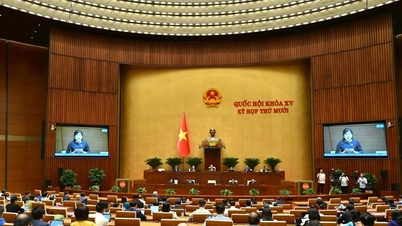


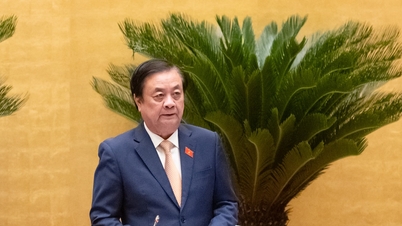
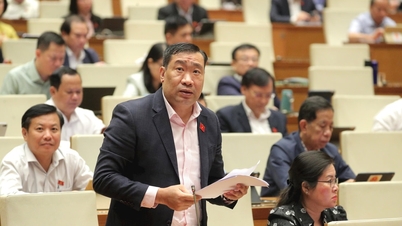
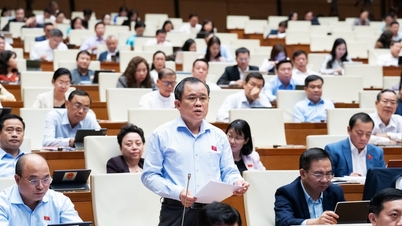
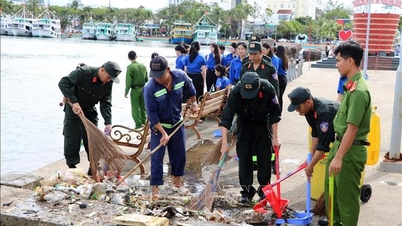

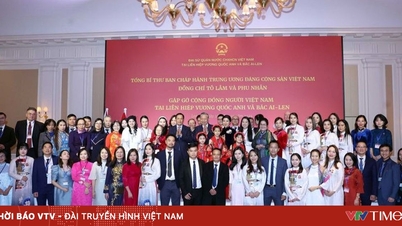

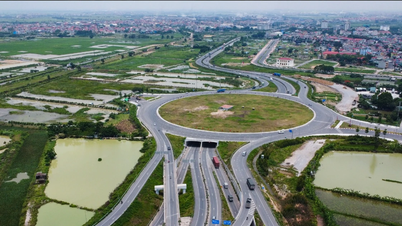
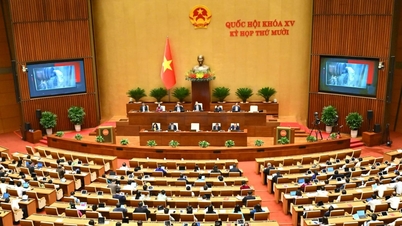


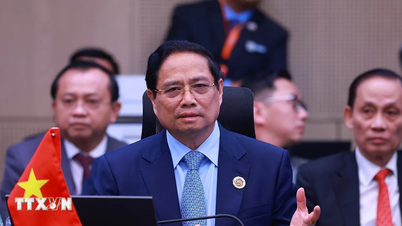

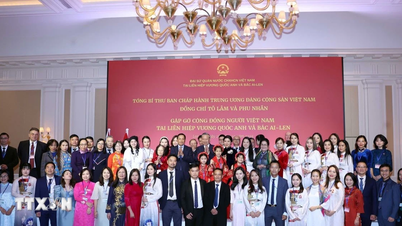




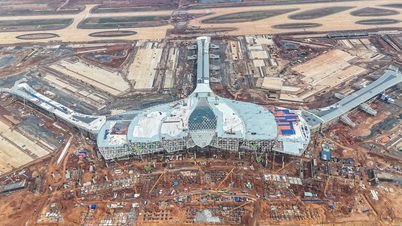
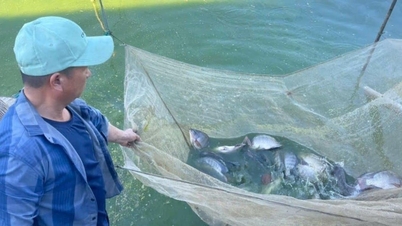
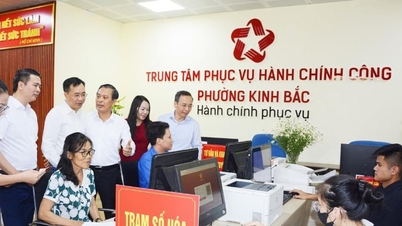
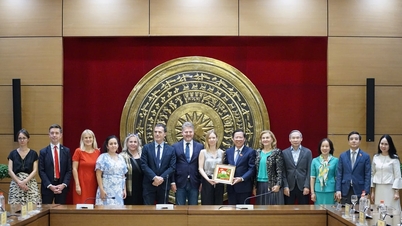
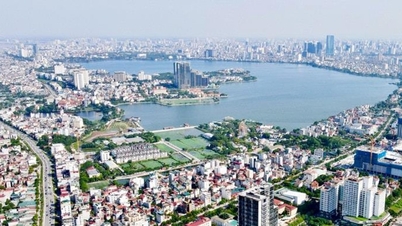
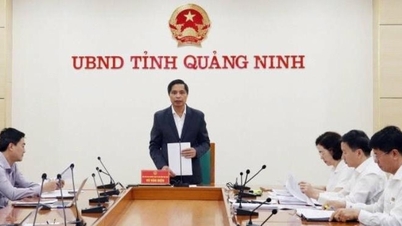
![[Photo] President Luong Cuong attends the 80th Anniversary of the Traditional Day of the Armed Forces of Military Region 3](https://vphoto.vietnam.vn/thumb/1200x675/vietnam/resource/IMAGE/2025/10/28/1761635584312_ndo_br_1-jpg.webp)



































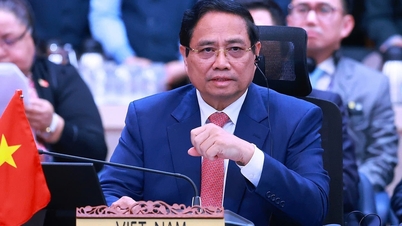
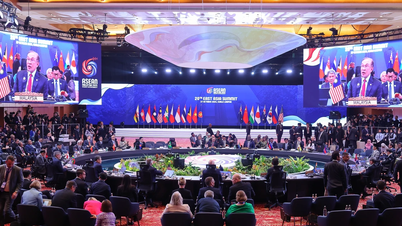



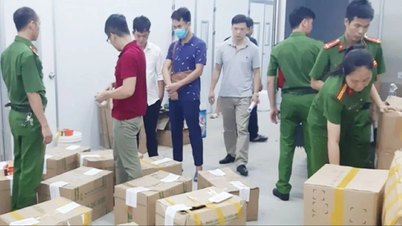

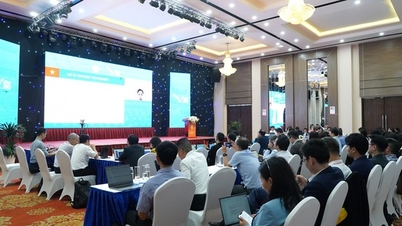

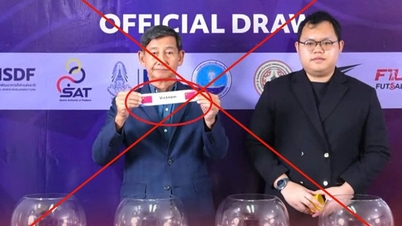

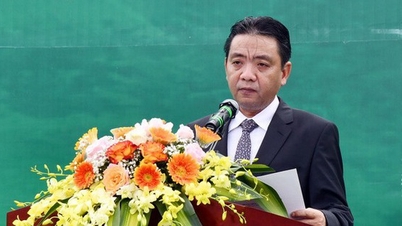
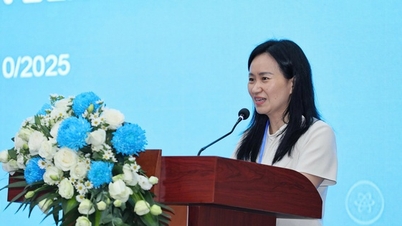
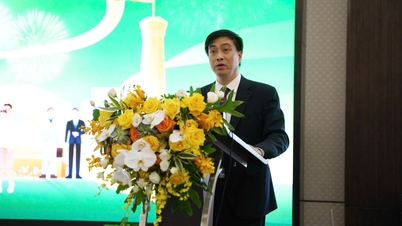


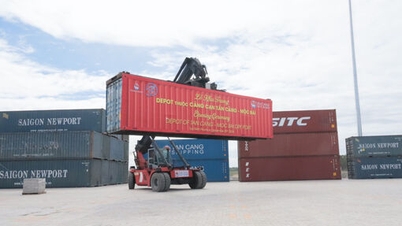


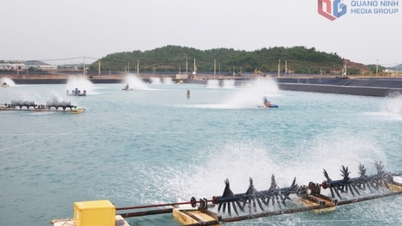

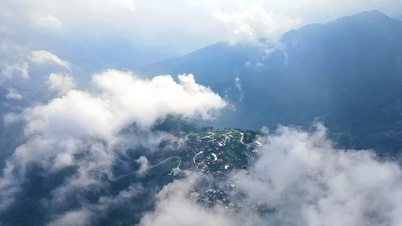



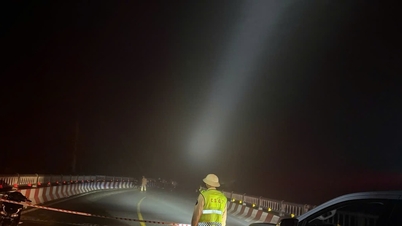















Comment (0)